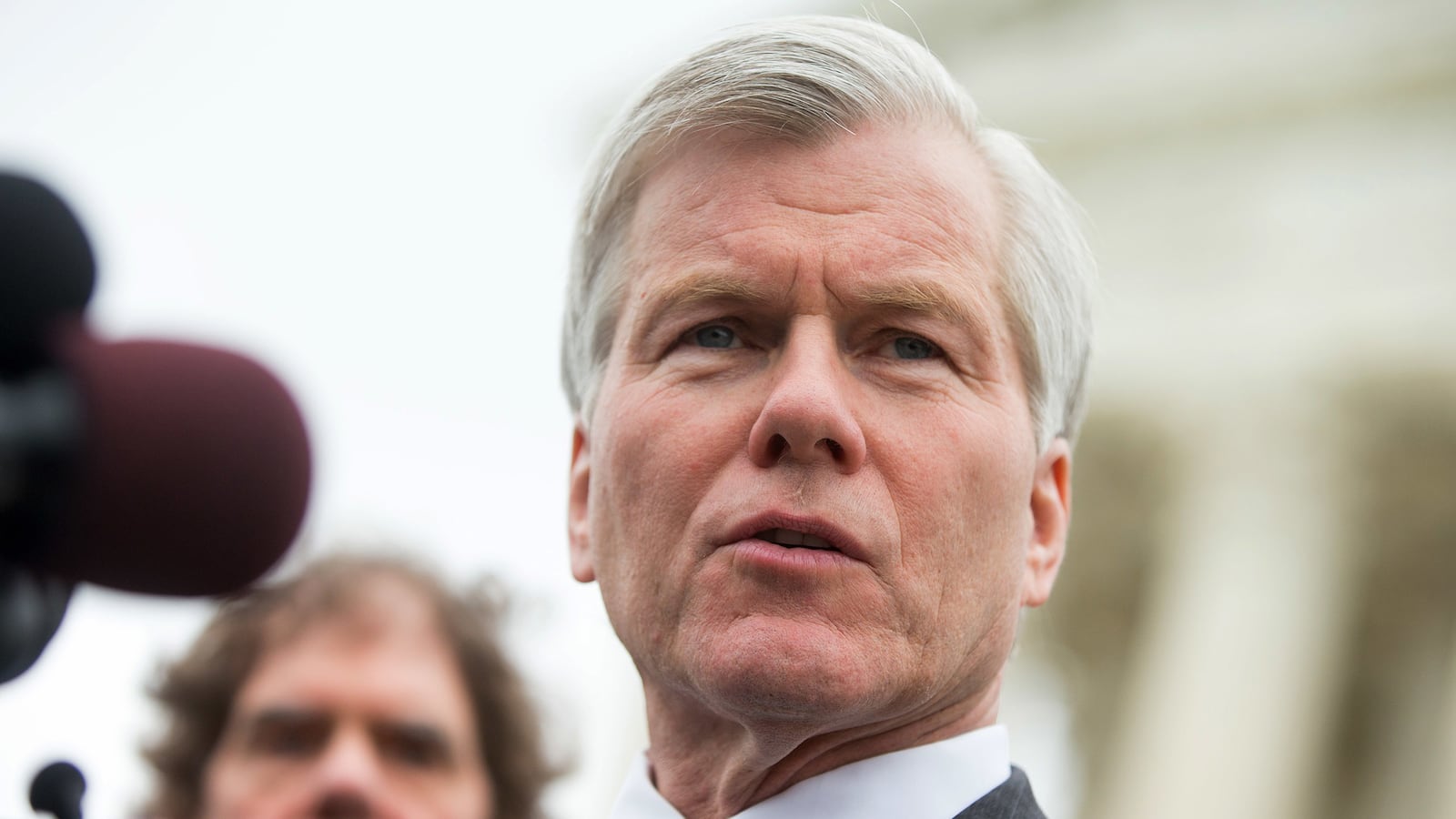The Supreme Court just threw a lifeline to politicians looking to play and get paid—and perhaps even to some big fish in New York who have already been caught and convicted for doing just that.
In 2014, former Virginia Gov. Bob McDonnell was found guilty on several counts of public corruption for doing favors for the producer of a very questionable nutrition supplement who gave him and his wife loans and lavish gifts. That was all legal under Virginia’s exceptionally lax rules for elected officials and, in the absence of a clear favor done specifically in exchange for those gifts, the Supreme Court voted unanimously to overturn his conviction—finding that the instructions the judge gave jurors regarding federal bribery law were “boundless.”
While the court’s 8-0 ruling was narrowly tailored, one powerful New York politician taken down earlier this year on federal corruption charges celebrated the decision.
“The Supreme Court’s unanimous decision today in the McDonnell case makes clear that federal government has gone too far in prosecuting state officials for conduct that is part of the everyday functioning of those in elected office,” said Steven Molo and Joel Cohen, the lawyers for Sheldon Silver—who until he was convicted on seven corruption-related counts earlier this year and sentenced to 12 years, was the powerful New York state Assembly speaker. “The McDonnell decision will be central to Mr. Silver’s appeal.”
Silver’s counterpart in the state Senate, Dean Skelos, was sentenced earlier this year to 5 years. Both were prosecuted by Preet Bharara, the U.S. Attorney for the Southern District, who’s made fighting political corruption in New York a signature issue.
But those sentences were suspended until SCOTUS ruled on McDonnell’s case. And since it ruled in the Virginia governor’s favor, New York’s twin icons of dirty politics are taking heart.
Susan Lerner, the executive director of Common Cause New York, said their newfound optimism is understandable—and disturbing.
“There is no question in my mind that every official—including two recently convicted here in New York [Silver and Skelos]—are going to be waving this decision around like a flag,” she said.
She noted it isn’t clear yet whether or not SCOTUS will get them off the hook. She added that in their cases, there was a much clearer connection between the gifts they received and the favors they provided in return. So the ruling may not be as helpful as their attorneys hope. Still, she said, the high court didn’t do any favors to anti-corruption crusaders.
“It emboldens legislators who have a bad sense of where right and wrong fall, to convince themselves that their conduct is just the way politics is done,” she said.
“My concern is that the way it may be covered and the way the public perceives it translates to legislators saying, ‘It’s fine for me to prefer having meetings with my large campaign contributors because that’s just business as usual according to the Supreme Court,’” she added. “That flies in the face of everyday people’s understanding of what’s corrupt.”
Others concurred.
“It’s disappointing, because it will certainly make reaching a bribery conviction more difficult,” said Tara Malloy, the deputy executive director of the Campaign Legal Center. “And it’s disappointing because it’s letting McDonnell off the hook, at least for the time being.”
Another leading ethics watchdog, who spoke anonymously to avoid speculating on the record about current cases, said the McDonnell ruling could also be a boon for U.S. Sen. Bob Menendez, the New Jersey Democrat facing upwards of a dozen bribery and corruption charges because of allegations that he traded political favors for fancy trips and campaign contributions.
But others see the ruling as a win. Stephen Klein, an attorney at the firm Pillar of Law, which specializes in free speech issues, said the ruling makes federal bribery laws clearer—not weaker.
“The McDonnell ruling simply requires prosecutors to establish the corruption part of corruption cases, nothing more, nothing less,” he said. “Allowing McDonnell to be convicted for simply setting up meetings or hosting a party in exchange for gifts that were legal under Virginia law would have allowed a ‘no duh’ approach to corruption cases; he would be guilty simply because Uncle Sam said so.”
And, he added, there’s an easier way to crack down on pay-for-play politicking: Pass and enforce strict rules on what kind of presents would-be influencers are allowed to give to lawmakers.
“There’s a very easy way to make sure McDonnell never happens again: Put strict limits on gifts that officeholders can accept from non-family members,” he said. “Federal law and most states already provide for just that.”





